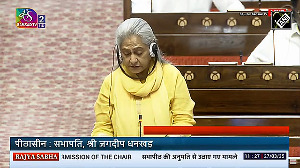Both the countries agreed to an “expeditious disengagement” at the face-off site following diplomatic communications.

India and China have almost completed the disengagement of border personnel at Dokalam, in a major diplomatic breakthrough which came a week before the BRICS summit in China which is expected to be attended by Prime Minister Narendra Modi.
The ministry of external affairs on Monday announced that both the countries agreed to an “expeditious disengagement” at the face-off site in Doklam following diplomatic communications.
In response to a question later in the evening, the MEA said the process of disengagement had almost been completed under verification, reflecting an end to the nearly two-and-half-month long standoff.
“This process has since been almost completed under verification,” MEA spokesperson Raveesh Kumar said, referring to the disengagement.
In Beijing, a Chinese foreign ministry spokesperson, however, sought to highlight the withdrawal of Indian troops to dispel the impression of a climbdown by China.
The official, while stonewalling questions about India’s announcement of the mutual disengagement of troops, claimed its soldiers continued to patrol the area.
Troops of the two countries had been locked in a standoff in Dokalam since June 16 after Indian troops stopped the Chinese army from building a road in the disputed area.
India had deployed about 350 army personnel in the area. Sources in the army said it had disengaged, implying that its troops had been withdrawn.
“In recent weeks, India and China have maintained diplomatic communication in respect of the incident at Doklam. During these communications, we were able to express our views and convey our concerns and interests,” the MEA said.
“On this basis, expeditious disengagement of border personnel at the face-off site in Doklam has been agreed to and is on-going,” it said in a statement earlier in the day.
In Beijing, Chinese foreign ministry spokesperson Hua Chunying said, “On the afternoon on August 28, India has pulled back all the trespassing personnel, equipment to the Indian side of the boundary”.
Hua remained silent on China’s plans to build a road, which sparked the standoff, and said it would “make adjustments” with the situation on the ground.
The official said the Chinese side would continue to “exercise its sovereignty, uphold territorial integrity in accordance with historical conventions”.
Asked if the Chinese statement meant China had not made any concessions, officials in New Delhi said expeditious disengagement implied a withdrawal of both parties because a unilateral withdrawal by India would not have required an agreement with China.
Responding to a question on the disengagement understanding, the MEA spokesperson said India’s principled position was that agreements and understandings reached on the boundary issues must be scrupulously respected.
“India’s policy remains guided by the belief that peace in the border areas is an essential pre-requisite for the further development of our bilateral relationship,” he said.
The two countries had also agreed in Astana in early June that “differences should not be allowed to become disputes and that India China relations must remain stable”, Kumar said, adding that India looked forward to continuing engagement with the Chinese side on this basis.
Modi and Chinese president Xi Jingpin had held talks in Astana, Kazakhstan, on the sidelines of the summit of the Shanghai Cooperation Organisation.
The BRICS summit, that brings together Brazil, Russia, India, China and South Africa, will be held in the Chinese city of Xiamen from September 3-5. Prime Minister Modi is expected to represent India at the summit.
External Affairs Minister Sushma Swaraj recently said both sides should first pull back their troops for any talks to take place, and favoured a peaceful resolution of the border standoff.
Photograph: Utpal Baruah/Reuters











 © 2025
© 2025